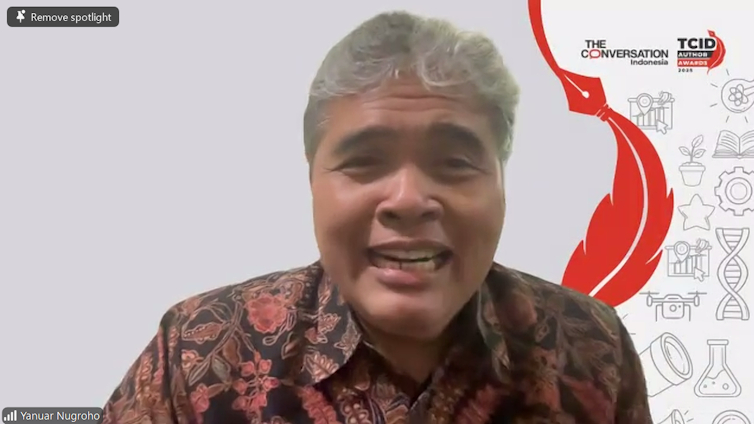Estonia's e-governance revolution is hailed as a voting success – so why are some US states pulling in the opposite direction?
- Written by Erik S. Herron, Professor of Political Science, West Virginia University

Estonia, a small country in northern Europe[1], reached a digital milestone when the country headed to the polls on March 5, 2023.
For the first time, over 50% of voters cast their ballots online[2] in a national parliamentary election.
As a political science researcher[3] who focuses on elections, I was in Estonia to learn about the process of internet voting. In the capacity of an international election observer, I visited standard polling places and also attended the final internet vote count held in the parliament building.
As someone who also regularly volunteers as a poll worker in the United States, I found the contrast between Estonia’s integrated information systems and internet voting, and the patchwork system operating in the U.S., to be notable. And with several U.S. states withdrawing from the Electronic Registration Information Center[4], or ERIC, that contrast is growing sharper.
I believe Estonia offers America an important example of how information sharing can be used to enhance the integrity of elections.
Estonia’s e-governance system
Estonia has long been seen as a pioneer in digitizing the democratic process.
Internet voting, which began in Estonia in 2005[5], is just a small part of the e-governance ecosystem that all Estonians access regularly. Using a government-issued ID card that allows Estonians to identify themselves and securely record digital signatures, they can register a newborn baby, sign up for social benefits, access health records and conduct almost any other business they have with a government agency. This ID card is mandatory for all citizens.
Central to the success of Estonia’s digitization revolution is a secure data-sharing system known as the X-Road[6].
Government agencies collect only the personal information they require to provide their services, and if another agency has already gathered a piece of information, then it is accessible through the X-Road. In other words, each piece of personal information is collected only once and then shared securely when it is needed. A person’s home address, for example, is collected by the population register[7] and no other government entity. If it’s needed by election administrators, health care workers, a school or any other agency, those organizations request it from the population register online.
So, imagine that you are applying for admission to a university, which requires both your date of birth and your school grades. These are stored by two different agencies. By using your ID card, you can auto-populate the application[8] using data that the system instantaneously pulls in from the two agencies that store that information.
Because of this information sharing, election officials know who is eligible to vote and which online ballot they should receive no matter where they live in the country.
A decentralized approach in U.S.
For many reasons, the U.S. system of election management is very different from Estonia’s, and online voting is rare[9].
Developing and maintaining an e-governance system requires technical, political and social forces to align. Because each U.S. state manages its own elections, and decisions can vary at the county level or below, it is difficult to envision a consistent technical solution. It is also more challenging to coordinate a solution across such a large country and safely implement secure online voting[10] given current U.S. internet voting technology.
Additionally, concerns about federal interference in state matters have prompted political and social pushback on recent election reforms[11]. Public consensus on instituting a nationally mandated electronic ID similar to the one that forms the foundation of Estonia’s internet voting appears unlikely.
Research shows that most Estonians trust their e-governance systems[12], although there are skeptics. Some critiques focus on perceived security shortcomings[13].
The internet voting process has also become politicized. In the most recent election, one political party that had discouraged its voters from using online voting – and unsurprisingly trailed its rivals in the online count – challenged the process in court. Its effort to annul internet voting[14] failed. The U.S. witnessed a similar dynamic around absentee ballots in the 2020 elections[15].
Balancing security, efficiency and access
While the United States’ decentralized approach[17] has its advantages, it also creates shortcomings in security, efficiency and access.
Secure elections means that only people who have the right to vote are able to cast a ballot and that they aren’t improperly influenced in the process. Efficient elections means the process is smooth — voters don’t have to wait in long lines, and their ballots are counted quickly and accurately. And access emphasizes that people who have the right to vote can register, gather the information they need in order to vote, and successfully cast their ballot.
Sometimes changes to voting practices that enhance one of these values – say, security – may create impediments for another – say, access. Requiring a photo ID to vote, for example, may reduce the small likelihood of voter impersonation[18], but it also risks preventing a legitimate voter who forgets to bring, or doesn’t have[19], a valid photo ID from exercising their right to vote. Finding an acceptable balance among these values is a challenge for citizens and policymakers alike.
Misinformation derails digital efforts
Several states, including my own state of West Virginia, recently made a decision[20] that I believe undermines all three of these values by making our elections less secure, less efficient and less accessible.
In early March, West Virginia joined Florida, Missouri, Alabama and Louisiana in withdrawing from the Electronic Registration Information Center[21]. ERIC is a multistate, data-sharing effort to make voter rolls more accurate and encourage eligible citizens to vote. The 28 participating states and the District of Columbia provide voter registration and driver’s license data to ERIC and receive an analysis that shows who has moved, who has died and who is eligible to vote but has not registered.
These reports help states clean up their voter rolls, identify incidents of fraud[22] and provide unregistered voters[23] with information about how to vote.
In other words, ERIC is designed to enhance security, efficiency and access. However, over the past year, unsubstantiated claims have circulated[24] that ERIC is being used as a partisan tool to undermine election integrity[25].
ERIC was established, however, as a nonpartisan information provider with bipartisan support[26]. States that exit ERIC may be sacrificing the integrity of their election process based on unfounded conspiracies[27].
The U.S. can learn a tremendous amount from Estonia’s e-governance revolution. Estonia faces a hostile security environment with an antagonistic Russia next door. But its integrated systems have helped balance security, efficiency and access in a wide range of government services. With the decision to withdraw from ERIC, some states are in danger of pulling the U.S. in the other direction.
References
- ^ northern Europe (data.un.org)
- ^ over 50% of voters cast their ballots online (news.err.ee)
- ^ political science researcher (scholar.google.com)
- ^ withdrawing from the Electronic Registration Information Center (www.npr.org)
- ^ began in Estonia in 2005 (doi.org)
- ^ X-Road (e-estonia.com)
- ^ population register (www.siseministeerium.ee)
- ^ the application (www.sais.ee)
- ^ online voting is rare (www.pewtrusts.org)
- ^ safely implement secure online voting (verifiedvoting.org)
- ^ recent election reforms (www.heritage.org)
- ^ Estonians trust their e-governance systems (doi.org)
- ^ perceived security shortcomings (gafgaf.infoaed.ee)
- ^ effort to annul internet voting (news.err.ee)
- ^ absentee ballots in the 2020 elections (www.scotusblog.com)
- ^ Michael M. Santiago/Getty Images (www.gettyimages.com)
- ^ the United States’ decentralized approach (aceproject.org)
- ^ small likelihood of voter impersonation (ballotpedia.org)
- ^ or doesn’t have (www.washingtonpost.com)
- ^ recently made a decision (www.npr.org)
- ^ Electronic Registration Information Center (ericstates.org)
- ^ identify incidents of fraud (www.statenews.org)
- ^ provide unregistered voters (ericstates.org)
- ^ unsubstantiated claims have circulated (www.theguardian.com)
- ^ partisan tool to undermine election integrity (www.wvnews.com)
- ^ nonpartisan information provider with bipartisan support (doi.org)
- ^ unfounded conspiracies (www.politifact.com)
Authors: Erik S. Herron, Professor of Political Science, West Virginia University




